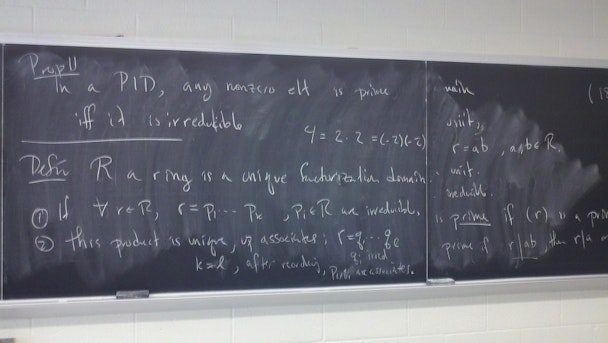The algorithm for success is more complicated than you'd think
I read a quite brilliant interview in Fast Company recently with the woman in charge of understanding all of Buzzfeed's reams and reams of data.

Unlike most data scientists, Dao Nguyen has a passion for understanding the human condition, not just geeking out on numbers or pouring over algorithms.
It's a powerful combination.
I could literally cut and paste the entire interview it is so jam packed with insights, and I encourage you to take the time to read it in full.
But in the meantime, let me pull out a few highlights.
In a world obsessed with data, the bigger the better these days, it's refreshing to hear Dao's perspective that data is fairly pointless unless you then use it to discover why something happened.
"The data never tells you why anything happens. Data will tell you, if you're very lucky, what happened. It won't ever tell you why. If you want to understand why, that requires a different set of skills, largely in your brain and in your heart. Why did this story resonate with people?"
Wise words. It reminded me of a phrase that used to do the rounds at Asda under Rick Bendel's watch as marketing director. "A point of view, Dominic, without customer insight is just your opinion."
Rick was never interested in my opinion, let alone anyone else's, unless you could back it up with actionable insight based on what customers were telling us.
The truth is, and through bitter experience we eventually accept, there are seldom any decent shortcuts in life.
We all look from the outside longingly at BuzzFeed and its never ending supply of viral stories.
Perhaps wrongly believing they have the secret recipe under lock and key. If only they'd share it, I too could make my content go global at the touch of a button.
But guess what, for every story that hits the sweet spot there are literally dozens more that don't.
Trial and error is a fundamental part of any scientific experiment. Hypothesis need disproving in order to stand up to scrutiny.
If something works, you have to challenge yourself to understand why. It's easy to jump to conclusions, creating myths and legends.
Dao says one myth about Buzzfeed is that data scientists are telling reporters what to write and what to cover.
"That's totally a myth. I'd like to dispel it at every moment I can. That's totally untrue. I take no responsibility for what these insane reporters cover. They just come up with all that themselves."
She goes on to explain that the myth stems from people's desire to have a black and white explanation, a simple explanation.
"The reality is that things are more nuanced than you would like them to be, and more complicated than you would like them to be."
As marketeers it's tempting to become treasure hunters, forever searching for the secret sauce that is going to be easy to dish out time and time again.
If it worked well once, it must work well again.
But we can easily place too much emphasis on one element at the expense of another less obvious factor.
Take influencers on YouTube or any other perform for that matter.
We peer in at their huge audiences, perhaps bumping into the odd piece of their content here and there.
On the one hand it's just a kid talking about a bunch of inane stuff they've done that day. Puh. Easy.
But in most cases we haven't bothered to tune into their previous 10,000 hours of content, where they've been honing their skills, listening intently for signals from their audience, adapting their craft each day, as they gradually improve their multiple metrics. Subscribers, shares, comments, thumbs up, thumbs down, links clicked, time watched.
10,000 hours of purposeful practice as Malcolm Gladwell would say.
Dao says part of BuzzFeed's success in spite of still having a pretty rudimentary apparatus in place, is the fact they have people who have grown out of the video side, people who used to make YouTube videos.
"If you make a YouTube video, you immediately get feedback: how many comments, what they said, how they liked it, whether it was shared. Talent that is emerging now is already very familiar and comfortable with the idea you receive these signals back and it tells you something or suggests something to you."
Today's influencers aren't influential by accident. Yes, they have the X-Factor, but unlike Simon Cowell would have you believe the 'X' isn't magical.
It boils down to the following equation:
X = HW + S x T2
Success equals hard work plus skill, multiplied by tenacity and time spent.
It's as simple as that.
Follow Dom on Twitter @domburch

